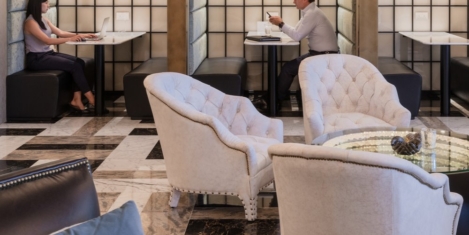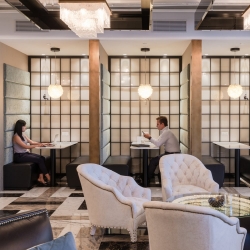To provide the best experiences, we use technologies like cookies to store and/or access device information. Consenting to these technologies will allow us to process data such as browsing behaviour or unique IDs on this site. Not consenting or withdrawing consent, may adversely affect certain features and functions.
The technical storage or access is strictly necessary for the legitimate purpose of enabling the use of a specific service explicitly requested by the subscriber or user, or for the sole purpose of carrying out the transmission of a communication over an electronic communications network.
The technical storage or access is necessary for the legitimate purpose of storing preferences that are not requested by the subscriber or user.
The technical storage or access that is used exclusively for statistical purposes.
The technical storage or access that is used exclusively for anonymous statistical purposes. Without a subpoena, voluntary compliance on the part of your Internet Service Provider, or additional records from a third party, information stored or retrieved for this purpose alone cannot usually be used to identify you.
The technical storage or access is required to create user profiles to send advertising, or to track the user on a website or across several websites for similar marketing purposes.
 Caleb Parker’s award-winning #WorkBold Podcast returned for an industry-leading ninth season, which took the podcast to over 100,000 downloads (117,000 at the time of publishing this article) with an audience from 90+ countries. The only podcast dedicated to Space-as-a-Service (SPaaS), #WorkBold Podcast is in the top one percent of business podcasts globally. Its host, entrepreneur Caleb Parker, is the founder of Bold – a joint venture with NewFlex. More →
Caleb Parker’s award-winning #WorkBold Podcast returned for an industry-leading ninth season, which took the podcast to over 100,000 downloads (117,000 at the time of publishing this article) with an audience from 90+ countries. The only podcast dedicated to Space-as-a-Service (SPaaS), #WorkBold Podcast is in the top one percent of business podcasts globally. Its host, entrepreneur Caleb Parker, is the founder of Bold – a joint venture with NewFlex. More →
































June 27, 2023
Understanding the power of mindset and what it can do for you
by Lisa Collinson • Business, Comment, Wellbeing, Workplace